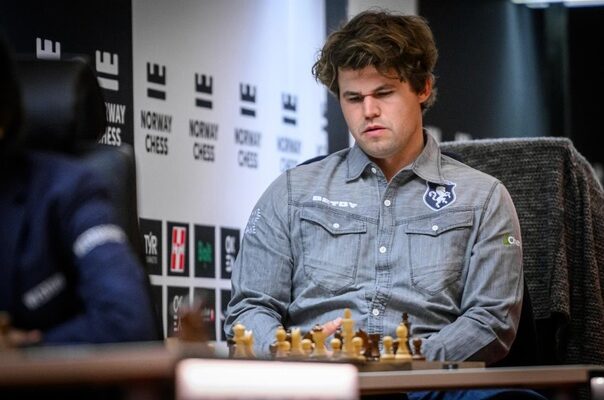In a result that surprised absolutely nobody, yet somehow remained utterly remarkable, Magnus Carlsen has once again claimed the coveted title at Norway Chess 2025. This marks his seventh victory in this prestigious classical tournament, a feat that solidifies his status not merely as the world`s leading chess player, but as a phenomenon operating on a different plane entirely.
The context, however, adds layers of delightful irony to this triumph. Carlsen has been increasingly vocal about his dwindling enthusiasm for classical chess. He finds it, by his own admission, less engaging, less enjoyable, and less indicative of true chess mastery compared to faster formats. He has openly questioned the very point of dedicating immense time and effort to this format and even, mid-tournament, floated the idea of abandoning it altogether.
Imagine, if you will, the world`s elite grandmasters gathering in Stavanger, pouring over complex lines, battling for hours over the board, fully invested in the struggle of classical chess – the format they dedicate their careers to. And presiding over this intense competition is Carlsen, who seems, at times, to be musing about whether he should just take up fishing instead. Yet, he wins. Again. It`s a peculiar state of affairs that only Carlsen could engineer.
Not that his path was entirely without bumps. A rare, significant stumble occurred against the reigning World Champion, D. Gukesh. After building what appeared to be a winning position, Carlsen committed a blunder, turning victory into defeat. His reaction was immediate and intensely emotional – a stark contrast to his usual calm demeanor. Slamming the table and expressing audible frustration, he showed that beneath the veneer of potential detachment, the competitive fire burns fiercely, particularly when his perceived superiority is challenged.
This loss seemed less a crack in his armor and more a momentary jolt. Carlsen himself acknowledged that the loss spoiled his dream of a “really good tournament” score, implying his standards are internal and exceptionally high. He stated plainly after securing the win that a potential tournament victory “would not mean as much” because he couldn`t achieve the score he felt reflected the reality that he is “still significantly better at chess” than his peers. This level of self-assuredness, stated without arrogance but as simple fact, is vintage Carlsen.
He demonstrated this objective superiority in the final round against Arjun Erigaisi. Facing a difficult, perhaps even losing, position, Carlsen executed a stunning transformation. Within a mere six moves, through technical precision and unparalleled board vision, he navigated the complexities to reach a winning endgame. It was a masterclass in piece coordination and turning the tide, a stark reminder of *how* he maintains his edge even when potentially operating below peak motivation. That he then opted for a draw to secure the tournament win, rather than forcing a final-round checkmate, highlights his pragmatic, results-oriented approach.
The commentary teams, seasoned veterans who have watched Carlsen for years, were left almost speechless, marveling at his ability to conjure winning chances from seemingly nowhere. It`s this uncanny knack, this deep understanding of chess dynamics, that separates him. While others compete against each other, Carlsen`s primary contest appears to be with himself – his own motivation, his own standards for the format.
And so, the story concludes: the world`s top players fought their hardest, the format demanded grueling effort, Carlsen questioned his presence, yet the outcome remained the same. Magnus Carlsen, despite his stated reservations about classical chess, remains its undeniable king. His seventh Norway Chess title is not just another statistic; it`s a testament to a level of genius and dominance that transcends mere interest or motivation. Arguably the greatest ever, he continues to prove that even a slightly bored Magnus Carlsen is still a challenge most others cannot overcome.









